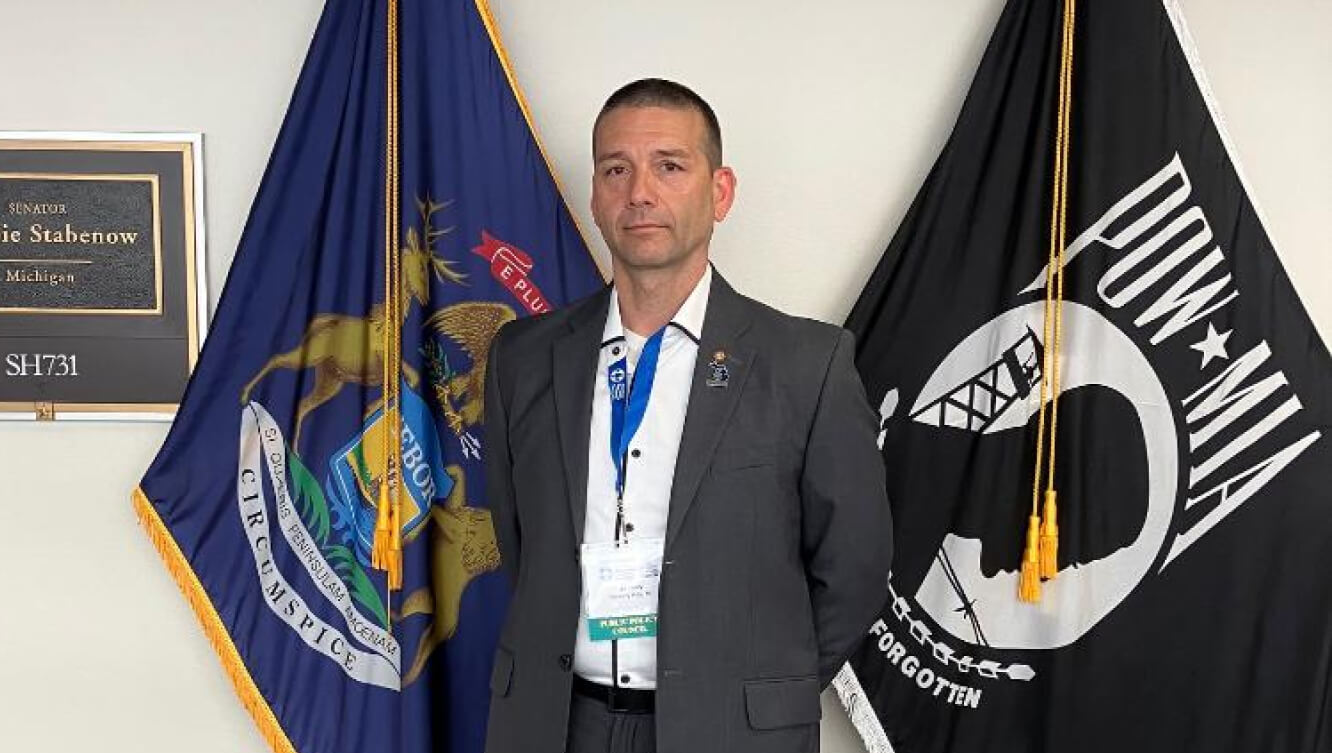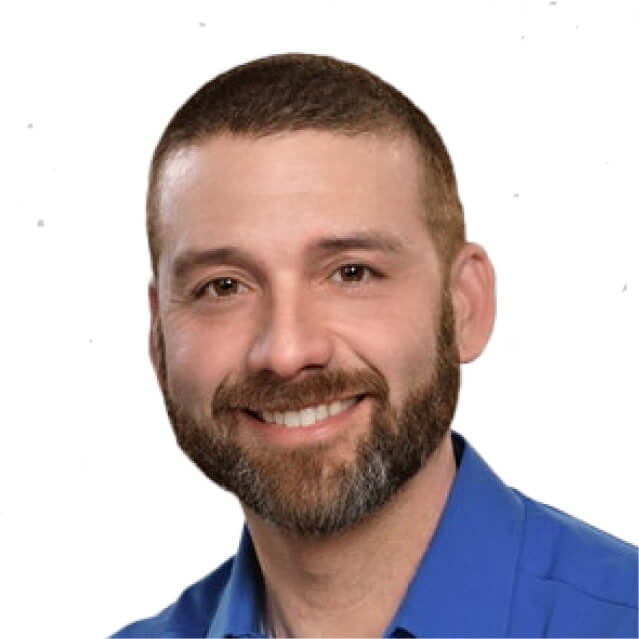Volunteer SpotlightIan PerryMichigan Chapter

A combat Veteran having served in the United States Marine Corps for nearly 14 years, Ian Perry was aware of fellow service members taking their own lives. But after returning from Iraq in 2004, it was the loss of a girlfriend’s 17-year-old brother and then the loss of a friend that brought home to him the seriousness of suicide as an issue that deserved his attention and dedication.
As an AFSP volunteer, Ian now devotes much of his energy and focus to military and firearms outreach, working in support of AFSP’s public policy advocacy efforts and the Bold Goal to reduce the rate of suicide 20%. Through AFSP’s Michigan Chapter, Ian establishes and maintains relationships with Veteran groups, coalitions, local units, first responders, and military organizations, and also serves on AFSP’s national Public Policy Council.
"You can’t talk about suicide prevention without talking about firearms. I’ve leveraged my firearms expertise to educate and inform my advocacy efforts, as well as helping to find actionable safe storage options for firearms owners. Having suicide-specific safety precautions and being able to temporarily reduce access to lethal means during a crisis can be lifesaving.
My involvement with AFSP began by attending a Walk, then helping to organize Walks, then joining the Michigan Chapter board and becoming a champion for AFSP’s Bold Goal, which has Firearms as one of its four critical areas. As a Volunteer Advocate, I have attended State Capitol Days and the national Advocacy Forum, and raised my voice in service to policy priorities related to Veterans, firearms, and other issues.
I've become a voice for those we've lost and those who need support today.
Veterans have their own unique considerations when it comes to discussing suicide. We have often had unique experiences inside and outside our borders. Some of us don’t like sharing too much with those who have not served. Some have a hard time talking about their experiences or adequately relating them to civilians. Veterans tend to be more open with other Vets once they are comfortable around each other. When it comes to someone who is struggling, it really takes a team effort to befriend and support that individual.
In my work with AFSP, I see that one-on-one connections are important, but even more impactful is when we connect with family members or those who are closest to the individual. They’re the ones who most readily notice when someone is in distress.
I try to help develop an action plan and ensure someone or multiple people are engaged, who can offer to remove or safely store a firearm in a time of crisis. Having several “teammates” to lean on in a moment of crisis ensures that nothing gets missed. I think back to the old military rule: ‘One is none, two is one, and three is better.’ It takes a team effort and trust.
I have presented AFSP education programming to various Veteran service organizations, the National Guard and other Veteran and first responder populations. I chaired a special Survivor Day event for Veterans in 2022, and this past year I chaired a Veteran-themed Research Connection program, which shares what we’re learning about suicide from scientific studies.
My efforts involving suicide prevention for Veterans extends out from the chapter and into the community. I am the Vice Chair of the Hillsdale County Veterans Coalition, participate with multiple veteran coalitions in rural counties, and serve as co-lead of the firearms and lethal means group of the Governor’s Challenge, which helps create a safety net for service members transitioning back to civilian life.
It gratifies me to know that through my connection to AFSP, I’ve become a voice for those we’ve lost and those who need support today.”
